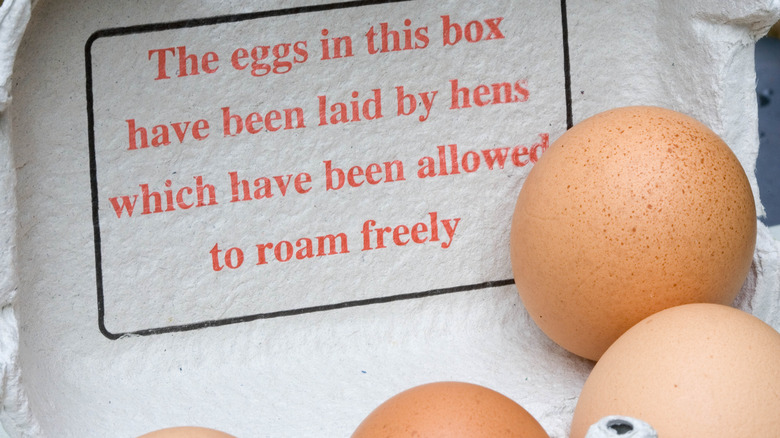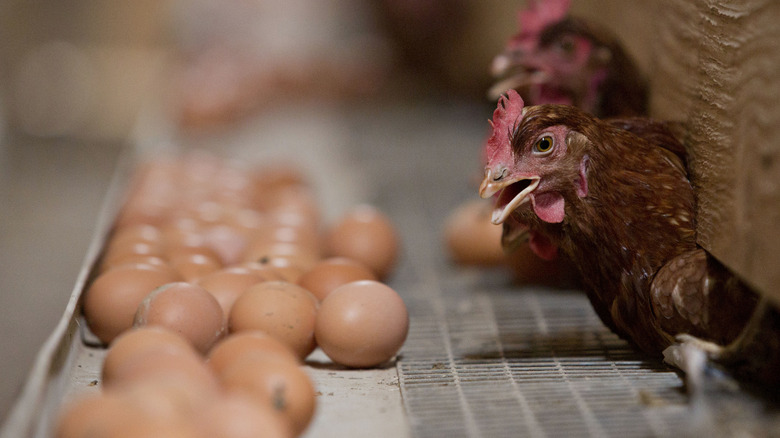The Reason Free-Range Eggs Are Temporarily Going Away In The UK
If you love eating eggs for breakfast, then there's a good chance that, along with conventional eggs, you've seen both cage-free and free-range eggs on the grocery store shelves when doing your shopping. They weren't always so popular, but, in recent years, several major global brands have announced that they're switching to cage-free eggs, including Unilever and Nestle, which both have a goal to use only cage-free eggs by 2025 (via Market Data Forecast).
But there is a difference between cage-free and free-range eggs. While cage-free eggs come from hens that are uncaged, they do usually still live indoors. Free-range eggs, however, come from hens that get to go outside.
That difference is what's behind the current free-range egg shortage in the United Kingdom. Yes, there have been many supply chain disruptions and grocery shortages due to COVID-19 over the past couple of years, but that's actually not the issue facing the U.K. egg industry right now.
They are dealing with a virus, but this one is affecting mostly just birds: avian flu.
U.K. officials want to stop the spread of avian flu
Unfortunately for free-range egg producers in the United Kingdom, their chickens are facing the "largest ever outbreak of avian flu," which has resulted in some new restrictions, via The Guardian. Apparently, avian flu spreads when chickens are outdoors, so the government has been requiring that even free-range egg producers house their hens indoors.
The rule started in November 2021, but there was a grace period for egg producers when it came to changing their labels. But, since the avian flu outbreak has continued, free-range egg producers are now being asked to change their packaging, 16 weeks after the indoor restrictions were implemented. Today, they'll need to label their cartons as "barn eggs" to indicate that the hens producing the eggs live indoors.
There is hope in sight, though, for both free-range egg farmers and the hens under their care. "A chicken won't be bothered about not going outside in December and January, but when it's nice in May they'll want to be out late into the evening," explained one farmer.
Luckily for the birds, avian flu thrives in cold weather, so the arrival of spring and the approach of warm weather could offer some reprieve from the disease plaguing free-range chickens in the U.K.

